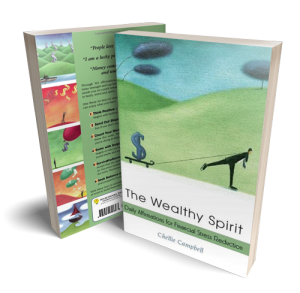123 – May 3
“Remember that there is nothing stable in human affairs; therefore avoid undue elation in prosperity, or undue depression in adversity.”—Socrates
You might remember the story of Joseph in the Bible, how he was sold into slavery by his brothers and taken to Egypt. After his misadventures with Potiphar’s wife, he was thrown into prison. But there he was discovered to have a talent for interpreting dreams. After several amazing interpretations, which later came true, word of his special talent eventually spread to the palace.
The Pharaoh had been having a terrible recurring dream. In this dream, he saw seven fat cows feeding in the grass, but then seven gaunt and starving cows came up after them and ate them. He also saw seven healthy ears of wheat, but they, like the cows, were swallowed up by seven ears that were withered and blighted. The Pharaoh was very disturbed. He felt a portent of doom was being shown to him, but he didn’t know what it meant. When he heard about Joseph’s ability to interpret dreams, he sent for him immediately.
Joseph had only to hear the Pharaoh tell the story and he knew what was afoot. He explained to the Pharaoh that the dream foretold seven years of plenty followed by seven years of famine and advised the Pharaoh to take one-fifth of the bounty from the first seven years and store it away against the need in the second seven years.
Even in ancient Egypt you had to budget—and save for a rainy day (or drought, as the case might be). Nothing much has changed. We regularly have economic expansions, followed by recessions. Yet we don’t seem to store 20 percent of our grain for the lean years. We use credit cards—even when the economy is booming. During the economic expansion from 1995 to 1999, Newsweek reported, consumer debt rose 34 percent to about $6.2 trillion. If you go into debt during the fat years, who is storing grain for the lean years?
Today’s Affirmation:
“I am a wonderful saver and investor, and store up plenty during plentiful times!”

Still today, our economy cycles through seasons of lack and seasons of plenty. As I’ve tracked it, it seems like 10 year cycles. I remember the recessions in the early 70s, 80s, 90s, and 00s. These downturns were always followed by upturns and the economy soared once again.
Somehow, during times of plenty, it feels like the good times have come to stay: We made it through the storm, survived, and now we’re doing great again and we’ve finally got it! We’re successful and we’re going to be on top forever!! We think.
That’s why people start charging up their credit cards again – they’ve been on Low Budget and now there’s more money and they want to splurge on High Budget. They’re free to do some of the things they couldn’t do when money was tight.
That’s fine. You should have some spree money when the economy loosens up. But you’ve got to carefully figure how much and for how long. Otherwise you get caught up in a new habit of spending and forget to store up your grain for the lean years.
Do not mistake it – there will be lean years come again. Have fun, enjoy your money, have the good life. Just make sure to have some reserves – cash, stocks, real estate, bonds, and other investments.
A zero balance on your credit card doesn’t count as a reserve.


